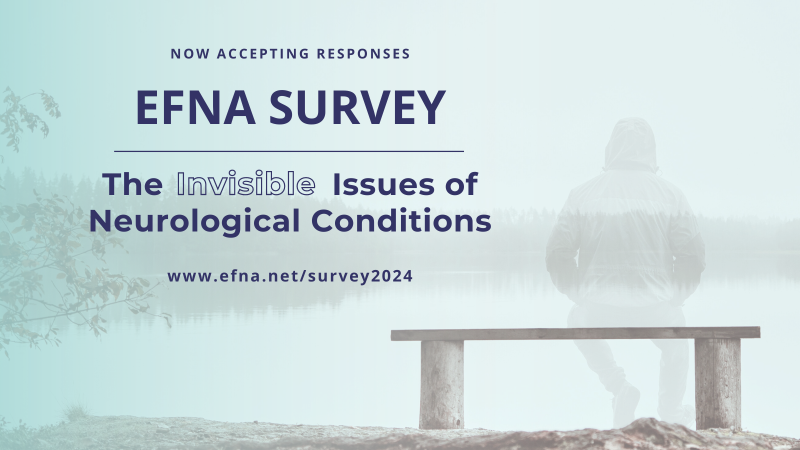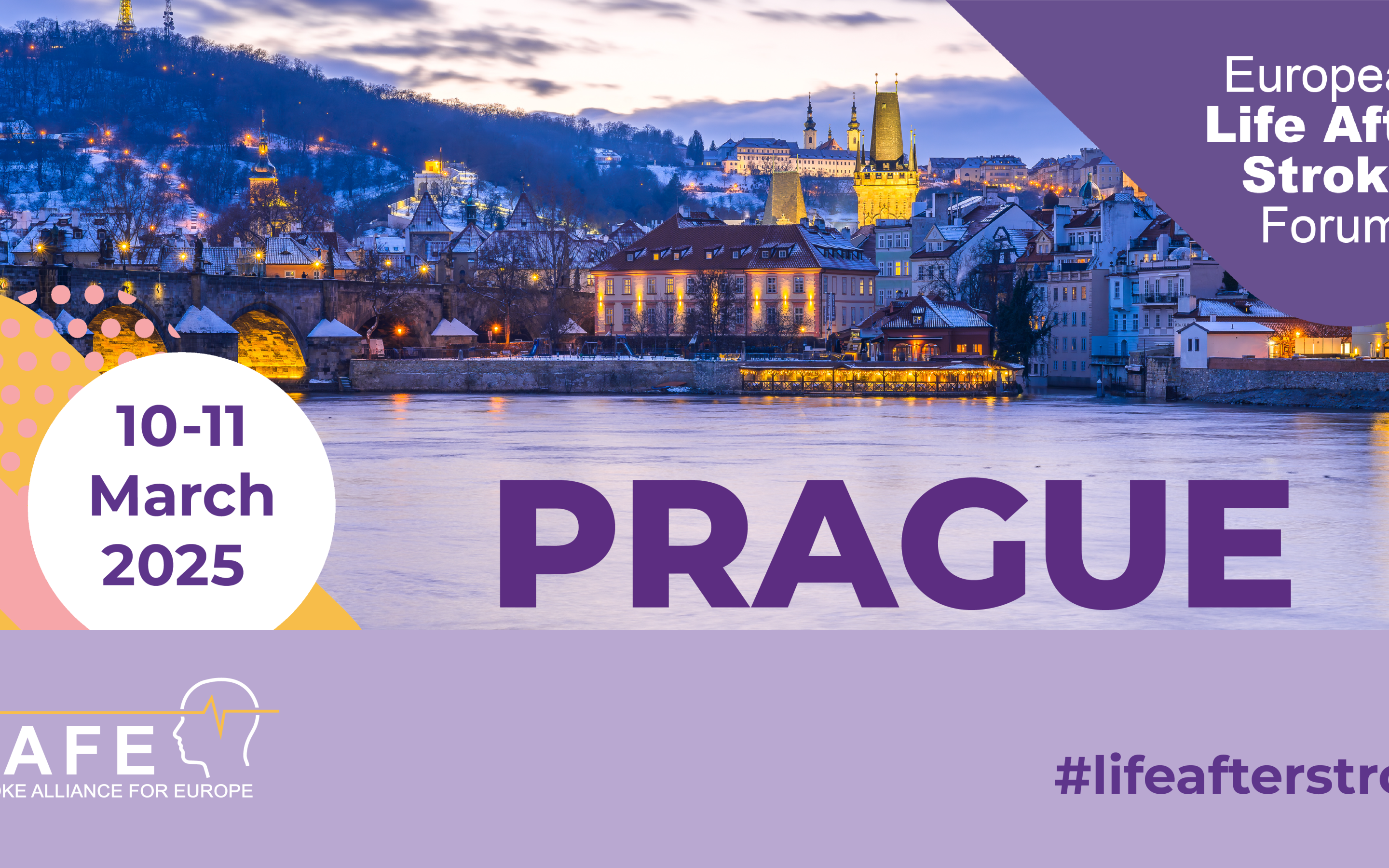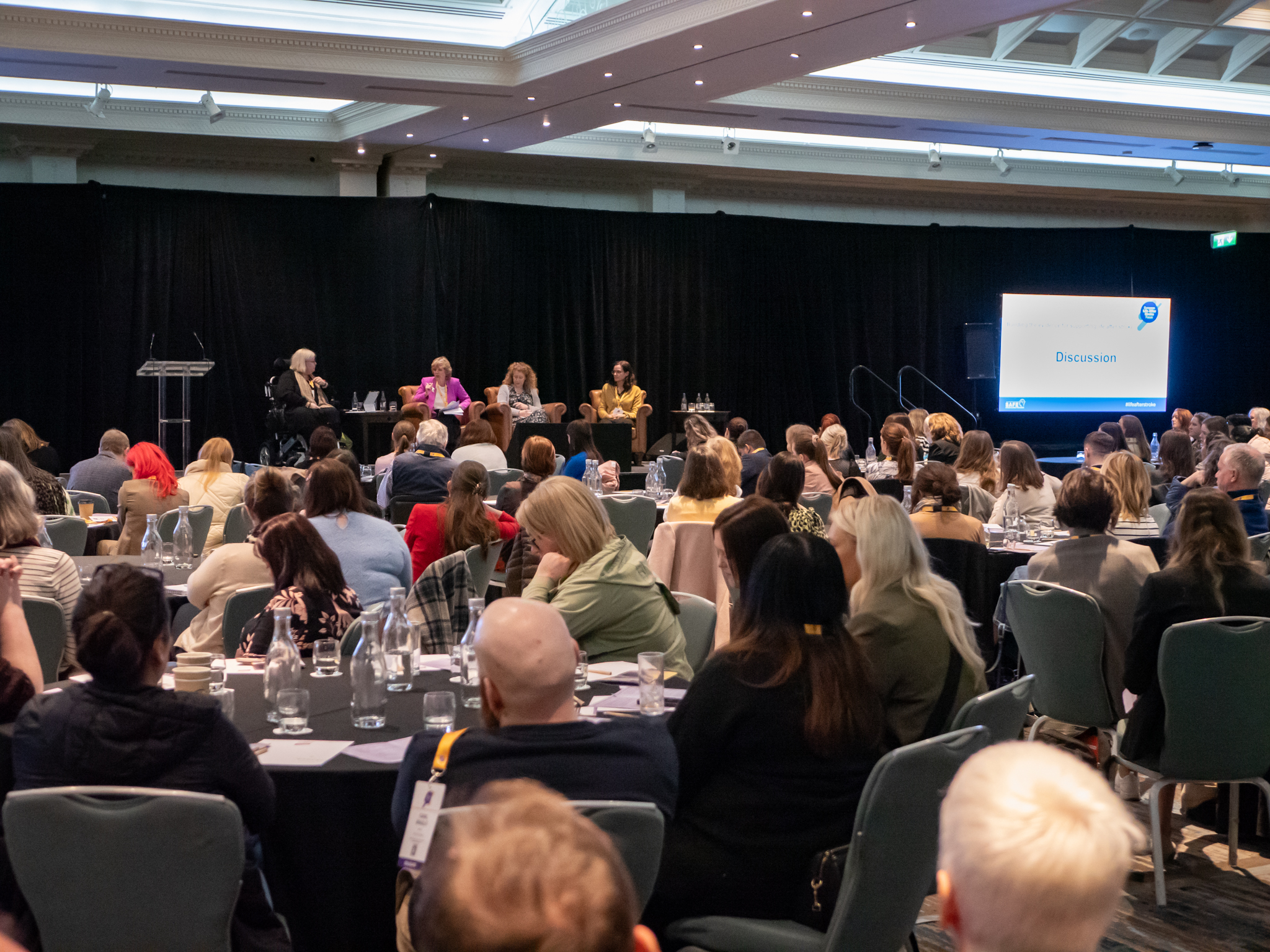
Jul 23, 2024
The European Federation of Neurological Associations (EFNA) has launched a new survey to assess and quantify the invisible issues affecting neurology patients and caregivers in Europe.
The aim is to identify, measure and report on these invisible issues (for example pain, stigma, fatigue) as faced by those affected by neurological conditions, either as patients or caregivers. Data generated through this survey can be used to create awareness of these issues and to advocate for change to address them.
This survey is open to anyone over the age of 18 who is living with a neurological condition, or who is carer to someone living with a neurological condition, that resides in Europe. It is available in 8 languages: English, French, German, Spanish, Portuguese, Italian, Polish and Romanian.
Findings from the survey will be published on the EFNA website later this year, and included for presentation at the next meeting of the MEP Interest Group on Brain Health and Neurological Conditions.
The survey will be open until 30/08/2024.
Click to respond to survey.

Jul 9, 2024
We are pleased to announce that our third in-person European Life After Stroke Forum in Prague is now open for registrations and abstract submissions.
The Forum is a unique event where healthcare professionals, researchers, policymakers and those affected by stroke can come together to address the issues of life after stroke. Our programme will be filled with the latest research and best practice, with the voices of people with lived experience at its heart.
We are actively seeking abstracts in two categories:
1. Scientific abstracts – share your stroke-related research, whether it’s ongoing or completed.
2. Services abstracts – have you developed innovative practices in life after stroke? It’s your opportunity to showcase your experiences and inspire others with your ideas.
Submission deadline: 7 October 2024

May 22, 2024
We are pleased to announce that the third in-person European Life After Stroke Forum will take place in Prague on the 10-11 March 2025.
The Forum is a unique event where healthcare professionals, researchers, policymakers and those affected by stroke can come together to address the issues of life after stroke. Our programme will be filled with the latest research and best practice, with the voices of people with lived experience at its heart.
Abstract submissions and registrations will open in July, sign up to our ELASF newsletter here to be the first to receive more details.

May 16, 2024
Did you miss the European Life After Stroke Forum or want to learn more after attending? Here is a summary of our Forum highlights:
- Abstract book: The book of abstracts features all the accepted abstracts, including oral, scientific and service submissions. Download Abstract Book
- Speaker slides: Access the event presentations from our speakers. View Speaker Slides
- Event report: Download the event report to get a comprehensive overview of the Forum’s sessions and activities. Download Event Report
- Event photos: View a selection of photos from the event here.

May 15, 2024
A story of denial, consequences and a wake-up call
Imagine a typical morning drive to a meeting in Padua, Italy. That’s where it all started for me, just another day, or so I thought. But a strange feeling in my car’s steering wheel set off a chain of events I never saw coming. I wasn’t feeling great that morning, but I brushed it off as just a bit of flu. Even when I started feeling dizzy and my leg went numb, I kept telling myself it was nothing serious. It wasn’t until I struggled to speak during a meeting that I realised something was seriously wrong.
I let someone else drive me to my next meeting. I got home and had dinner. I was feeling worse by the minute. Despite my wife’s pleas, I refused to go to the hospital. I was convinced I could tough it out, even though deep down, I was scared that I had had a stroke. You see, my sister-in-law had a stroke a year earlier, so I knew the symptoms
I said to myself ‘I’m living a very healthy life anyway, I do sport, I haven’t smoked for years, so I certainly don’t have any problems’, but I understood, even if I didn’t want to admit it, that something ‘big’ had happened. I had stopped taking all the pills my doctor had prescribed a while ago, statins, aspirin and blood pressure pills and I had a very busy job that regularly kept me away from home, eating in restaurants.
The next day, things only got worse. Finally, I gave in and went to the hospital. That’s when everything changed. Turns out, I’d tried to ignore my stroke, thinking I was both Rambo (I was angry, but this was not going to get me) and Peter Pan (I am not even fifty – I am too young for this). From that moment on, life changed, not only for me, but also for my family.
My message to you – one thing is certain; you know when something very bad is happening to you. Recognise it, know it! You don’t have to pretend you don’t notice or that you are superior. If you don’t have time to stop for a check, fate will stop you. Ignoring warning signs and thinking you are too young or too invincible only leads to trouble. Listen to your body and take care of yourself!
By Claudio Mari











